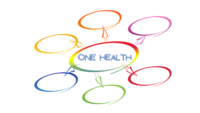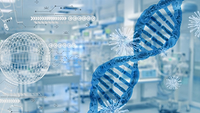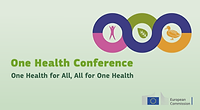Key Recommendations for Advancing Food Safety from EFSA One Health Conference

Credit: The European Food Safety Authority
The European Food Safety Authority (EFSA) has published six key recommendations for advancing food safety based on discussions held at the recent ONE—Health, Environment, and Society—Conference. The hybrid event was held in Brussels, Belgium and virtually on June 21–24, 2022.
The conference was designed to explore how scientific advice on food safety and nutrition will need to develop to respond to new policy targets and societal demands for safe, nutritious, and sustainable food. The event also addressed how institutions that provide scientific advice on public health, environmental protection, food safety, and nutrition should work more closely together and increase their preparedness for emerging and evolving challenges.
EFSA organized the conference in collaboration with the European the European Environment Agency (EEA), the European Medicines Agency (EMA), the European Center for Disease Prevention and Control (ECDC), the European Chemicals Agency (ECHA), and the Joint Research Center of the EU (JRC). The international scientific conference brought together experts and stakeholders to discuss key food safety topics and share knowledge, data, and expertise, with the intent to embrace the “One Health” approach to health assessment. The conference consisted of a series of plenary sessions and breakout sessions organized around four thematic tracks—One Life, One Planet, One Society, and Many Ways—across three, interconnected tiers—food safety, One Health, and food system sustainability. More than 2,700 individuals from academia, public institutions, the private sector, and nongovernmental organizations took part in the event.
Recommendations to Advance Food Safety
The potential impacts of recent developments on food safety and how EFSA can respond were considerations at the core of the conference agenda. In order to continue to best protect human, animal, plant, and environmental health, conference participants encouraged EFSA to:
- Keep up with and capitalize on the latest developments in science and technology, such as “big data,” automation, artificial intelligence (AI), non-animal testing methods, chemical mixtures risk assessment, microbiome research, and novel food and feed sources
- Invest in future preparedness tools such as strengthened foresight, horizon scanning, monitoring and surveillance, hot spot mapping, and greater liaison among existing networks in order to effectively handle emerging risks including disease outbreaks, antimicrobial resistance (AMR), and biological invasions of plant pests
- Support the transition towards sustainable food systems by understanding food safety through a broader perspective that takes into account factors such as dietary guidelines, environmental risk assessment, and animal welfare
- Increase relevance to society and access to scientific knowledge through better communication and engagement, leveraging social sciences, and an “Open Science” approach (making food safety-related scientific knowledge findable, accessible, interoperable, and re-usable)
- Collaborate with food safety stakeholders across the EU and globally to better connect and integrate knowledge, data, and expertise across stakeholders and sectors
- Apply the One Health approach to frame health assessments holistically, integrate diverse data, transcend regulatory silos, and recognize the inextricable link between the health of humans, animals, plants, and their shared environment.
Looking for a reprint of this article?
From high-res PDFs to custom plaques, order your copy today!






